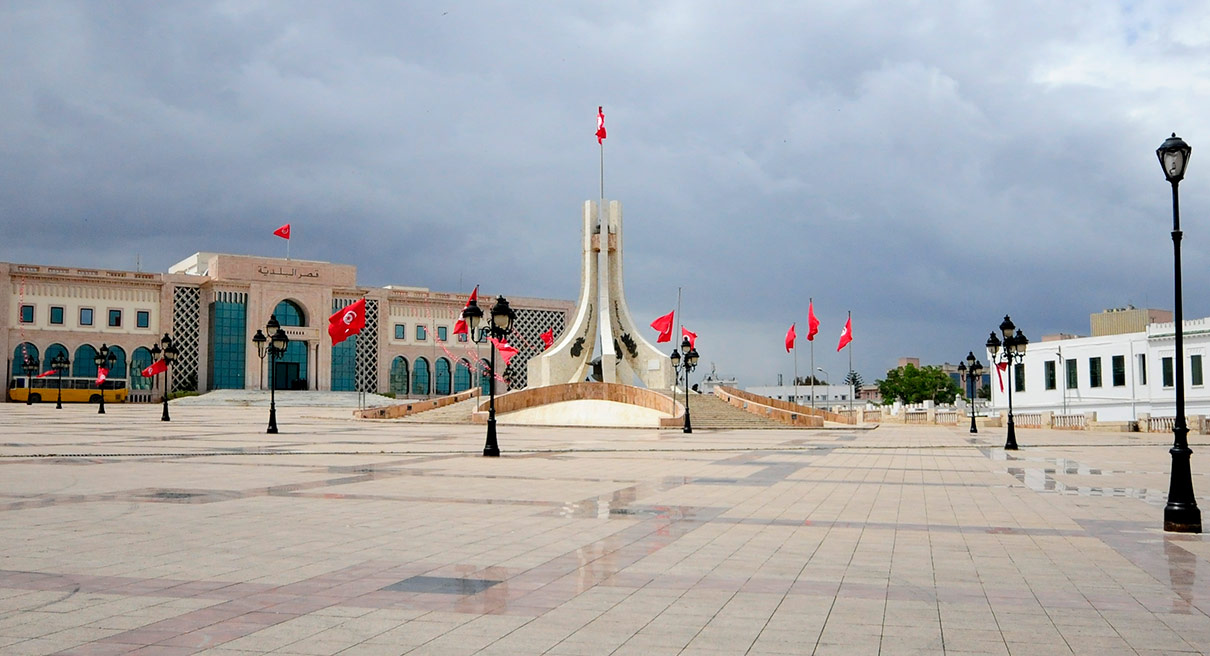During your time as ambassador (since 2015), Tunisia has made significant political progress, but not much progress in the economic sphere. What can the international community do to assist Tunisia in progressing with the economic reforms necessary to move the transition forward?
The United States is committed to providing robust levels of economic assistance to Tunisians and the country’s nascent democracy that will allow the country room to maneuver to take difficult decisions without negatively impacting key constituencies. As we have seen in many other countries, foreign assistance can be part of a cushion as the government tries to deal with the fallout of a transition. Along with foreign assistance, the United States has continued to encourage our Tunisian friends to have more lasting, comprehensive efforts at combating corruption and to reflect and improve on competitiveness. But in both areas, we want Tunisians to recognize that there is room for improvement.
Tunisia’s friends in the international community need to continue focusing on countering corruption and ensuring that this features prominently in our foreign assistance. Tunisia continues to attract substantial foreign assistance from its friends, so it is important to support the country in its endeavor to improve the pace of measures to mitigate corruption, improve government transparency and adopt reforms to enhance its capacity and core competitiveness. Robust efforts are needed. This is not an easy journey.
How would you characterize the U.S.-Tunisia relationship today compared to when you first arrived in Tunis?
I am fortunate to have arrived after former ambassador Jake Walles, who did excellent work, so I inherited a relationship in very good shape where the United States is viewed positively by key sectors of Tunisia. There clearly has been further development of the relationship in the defense and security sectors. Some seeds were planted before my time, some have been developed since. The cooperation with the United States in this area is now broader, deeper, and more intense. Tunisia has good tools to meet its defense challenges and enhance U.S. national security in this part of the world.
What was your favorite moment as ambassador?
In January 2016, the country went through a very challenging set of protests, and the geographic spread of the protests was broad. Tunisian law enforcement successfully dealt with people exercising their right to demonstrate and used tools to handle the protests in a measured way. While the protests were intense, no demonstrators died by the use of force by law enforcement, which was a contrast to previous episodes. This signaled a moment of a significant increase in Tunisian law enforcement’s technique and discipline while broad parts of the population exercised their right to protest. This also signified positive progress in the ability of the people to strongly express their views with relative safety.
A second example—in 2016, it was the first time I gave a speech in [colloquial Tunisian]. This was a Technovation program that encourages girls and women to learn about computer coding in order compete in Tunisia and the world. During the event, I spoke to girls ages ten to eighteen from all twenty-four governorates, and I saw their energy and thirst for knowledge. This gave me a sense of optimism to see such a wellspring of energy, talent, and thinking. It showed me that Tunisia has the tools to succeed in the global economy. Tunisia has been prized for the role of women in modern history. There are many opportunities for women, but women are often still held back. At this event, however, I saw that women are learning and learning to dominate the tech field. I was proud that the United States was supporting such a program and happy to see private sector support for such work, which showed the consciousness of some in the private sector to reinvest in youth and gave me even more optimism for the future competitiveness of the country.





